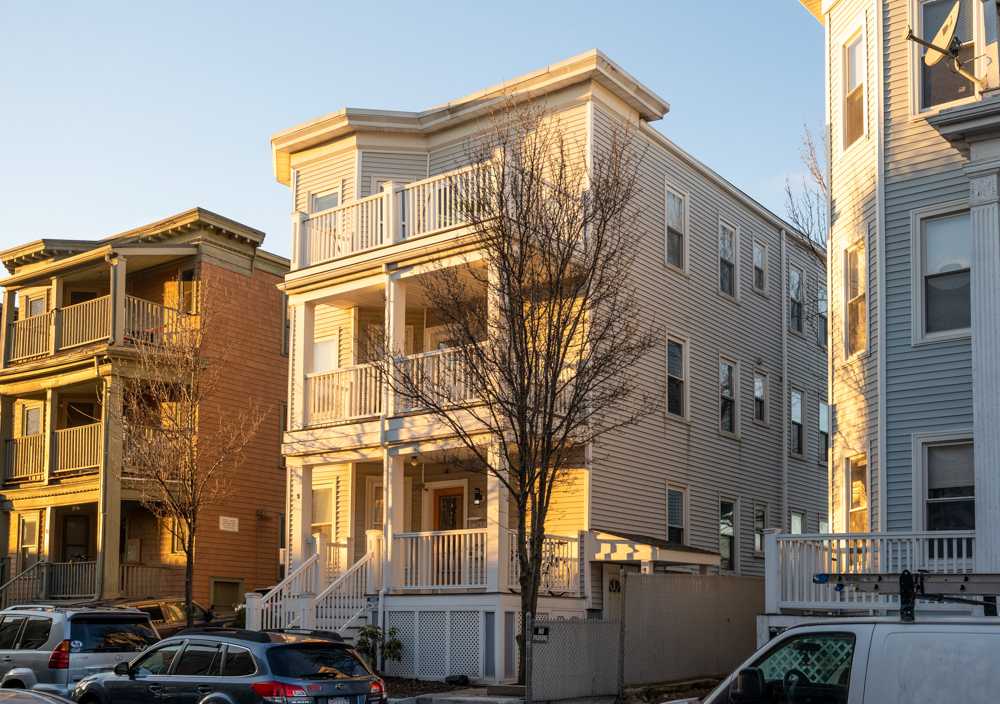Though September may seem worlds away, the lease cycle for the upcoming academic year is in full swing as students scramble to find off-campus housing and sign leases.
The close proximity to campus and comparably low rent that Allston offers has attracted Boston University students to the area for decades — but, as demand outpaces supply, finding affordable housing in Allston has become more difficult than ever.
Vedika Saboo, a freshman in the College of Arts and Sciences, said she faced these challenges looking for housing in late December 2022.

“We were very stressed about getting an apartment and especially since it wasn’t in the area we were originally looking at,” Saboo said.
Saboo said she and her three roommates ended up using a real estate agent after realizing how expensive and insecure the housing market is.
“It was hard because apartments were going so quickly,” Saboo said. “Right when we toured one and we were like, ‘Oh, we’ll set a price on it. We’ll try and sign a lease,’ our agent was like, ‘Oh, someone just signed it already. It’s gone.’”
Saboo said her group settled on an about $5,200 per-month unit for four people.
“This one we got lucky with, but some of them were much more expensive,” Saboo said.
Mihir Bhuptani, a sophmore in the College of General Studies, plans to leave his Sleeper Hall dorm in West Campus and move to Allston for the next school year, having signed a lease in January with three of his friends. When the group went to tour apartments, Bhuptani said he would see another group of people waiting to tour the same place before and after them.
“We felt like if we’re going to decide to live here we should do it fast before any bidding war happens,” Bhuptani said.
While BU gives students the option to reserve guaranteed housing, Bhuptani said that moving off campus would be less expensive because he would be saving money not being on a meal plan — this year priced at more than $6,000, if he were to stay in his dorm. Additionally, Bhuptani said, he favors the “independence and freedom” that comes with going off-campus.
The nature of student residence in Allston is fleeting — every year there is a new pool of students to replace those who move out. The presence of the private universities in the area make students an unavoidable yet ever-changing part of the community.
John Woods, executive director of the Allston Brighton Community Development Corporation, strives to make housing affordable for low-income residents in the Allston and Brighton areas.
The mission of ABCDC, founded in 1980, is to represent the unheard voices of the community and “to improve the quality of life for the residents of Allston-Brighton,” Woods said.
The ABCDC owns nine different properties with 520 housing units, which are home to about 1,200 people. Woods said these units are “an oasis of affordability in an otherwise unaffordable neighborhood.”
Woods said Allston’s housing market is increasingly changing and “has always been significantly impacted by the number of college students that are around.”
Woods said the expansion of Harvard College into Allston has brought graduate students and young professionals who have financial mobility into the area.
“The lower to moderate income residents are competing with a higher income population and that’s created some difficulty for folks to stay in the neighborhood,” Woods said.
The presence of students who can cram into housing units and can all individually contribute to their rent makes it harder for families and longtime residents of the neighborhood to afford their homes, Woods said.
In 2021, Allston was the residence of 4,675 college students, the highest off-campus student population of any of the city’s neighborhoods, according to the city of Boston’s 2021 Student Housing Trends study.
“It creates additional hardship for folks who are looking for affordable housing,” Woods said.
There are newly renovated housing developments in the Allston area which Olivia Qi, a sophomore in the College of Communication and CAS, has lived in since last spring with one roommate.
Qi said the new utilities of the apartment complex contributed to why her and her roommate decided to live in Allston as opposed to Fenway, where the rent is a similar price but the apartments are not updated.
The two roommates plan on staying in their apartment for the rest of their time at BU in part because of its proximity to Koreatown and its many food options.
Signing a lease can be a significant commitment for students, especially for those who don’t plan on staying in Boston for an entire year. Rather than renting, students also have the option to sublet from someone who has already leased their apartment.
Zoe Rice, a junior in CAS and the Frederick S. Pardee School of Global Studies, is no stranger to subletting, having done it once before. Now subletting an Allston apartment, she said her search for available units was just as difficult the second time around.
During her Fall semester abroad in London, Rice said she spent a month sending out messages on social media in search of a place to sublet. But either the sublet would already be filled by the time she reached out or she wouldn’t receive a response, she said.
Rice said she did not want to spend more than $1,100 a month on rent. Although it took a few weeks, Rice met her financial goals and was able to choose between two places and, while overseas, arrange a sublet with two roommates.
“For the demand that there is for living off-campus, I feel like that is reflected in prices.”























































































































